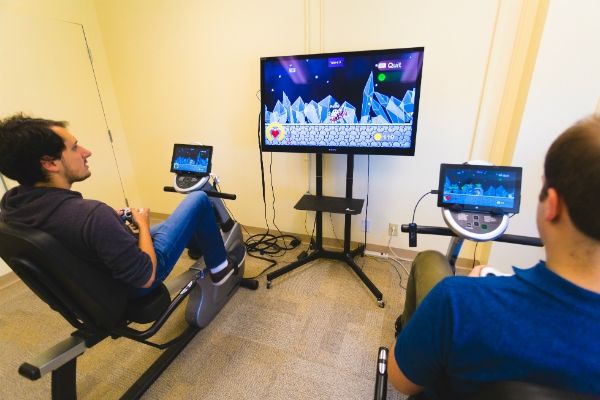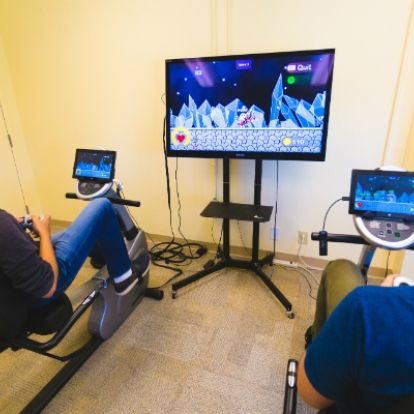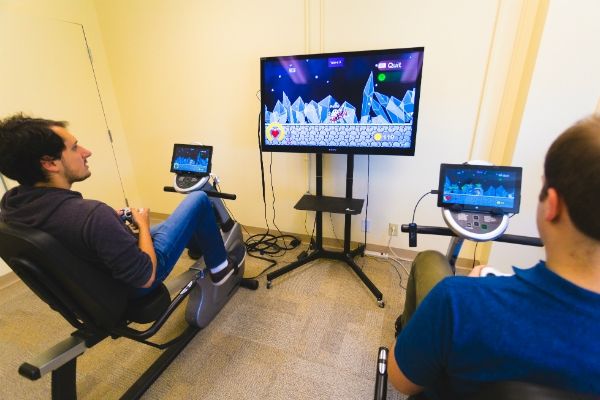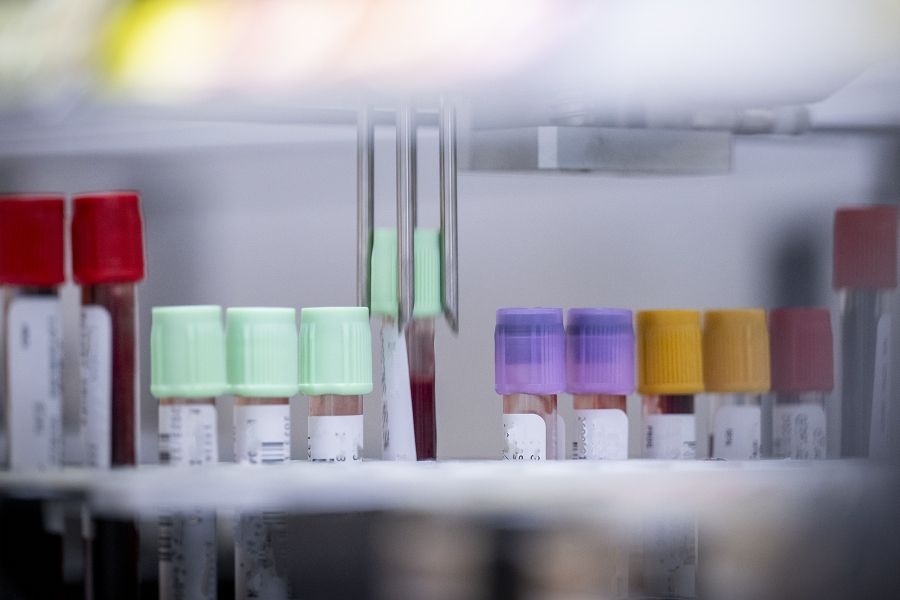
A small group of local families is helping a Kingston Health Sciences Centre developmental pediatrician study the effectiveness of a novel exergaming program to increase physical activity and fitness in children with autism spectrum disorder (ASD).
The pilot study is led by Dr. Dawa Samdup, a clinician-scientist with the KGH Research Institute and co-investigator Nick Graham, professor of computing at Queen’s University, with assistance from Brendon Gurd, associate professor (School of Kinesiology) and Helen Coo, research assistant (Department of Pediatrics). The study will involve five children aged 9-12 and their parents, and will take place in the children’s homes, where they will play specially designed exergames using a recumbent bicycle fitted with a tablet computer, 45 minutes per day, three days a week for six weeks.
A sensor in the exercycle will relay pedaling speed information to the computer, which will also capture heart rate information in real time via an arm-mounted monitor. The research team will assess the children before and after exergaming using collected data on cardiovascular fitness and health-related quality of life. This data will also be used to design a larger study looking at exergaming and physical fitness in children with ASD.
“Children with ASD face numerous barriers to engaging in physical activity,” says Dr. Samdup, of the KidsInclusive Centre for Child & Youth Development at KHSC’s Hotel Dieu site. “Many have poor motor skills and sensory and social impairments that lead to avoidance of team-based sports or other physical activity. Food choices, medications and low levels of physical activity puts children with ASD at risk of unhealthy weight. We know that there are higher rates of overweight and obesity in this population, yet there’s a surprising lack of proven strategies for promoting exercise and fitness in children with autism.”
The suite of exergames, called Liberi, was developed by Professor Graham at Queen’s University’s EQUIS Lab in the School of Computing to promote better cardiovascular fitness in children with cerebral palsy. Simpler to operate than commercially available exergames, players pedal to power an avatar; the harder they pedal, the faster the avatar moves.
“These are tech-savvy kids, and these games enable the children to get active while enjoying themselves,” says Dr. Samdup. “It also gives them the option of playing with others, which helps them to find buddies and build social skills with peers with similar interest. It’s a perfect fit.”
This study is unique in several aspects. It will be the first time the Liberi games have been tested on children with ASD. And the children and families involved will provide input on how to design the next, larger study. “For example, should the program be offered in schools or camps? How could the games themselves be improved? Having the families’ feedback gives us the personal perspectives we need to make sure we’re studying the broader issues that this community faces,” Dr. Samdup says.
Her aim is to develop an innovative rehabilitation program for children with autism spectrum disorder that could be offered in schools, homes, and clinics. “With the rising prevalence of ASD, this innovative physical activity program could expand the scope of healthcare for those whose access to evidence-based interventions targeting physical activity are limited and who might not engage in regular physical activities.”
The $44,000 pilot study is being funded by the Southeastern Ontario Medical Association (SEAMO) Innovation Fund.





